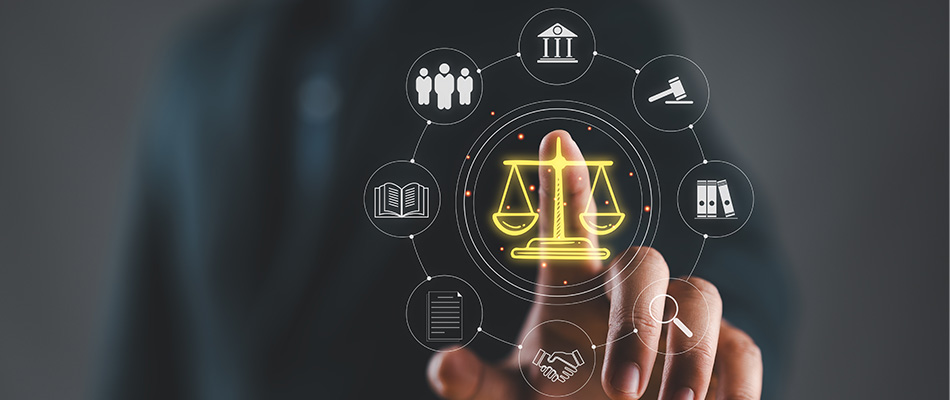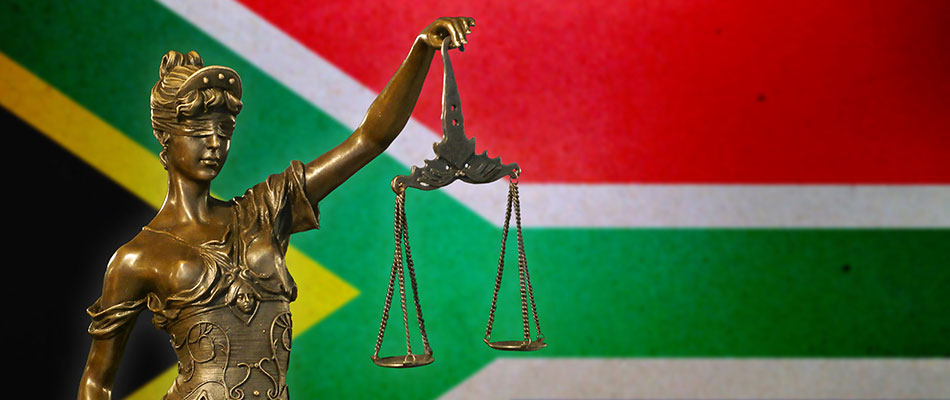In the modern time, the internet has changed how people connect, work, and share information. While the Internet offers many benefits, it also comes with risks like cybercrime, online fraud, and data breaches. Cyber law in South Africa addresses these challenges and ensures a safe digital environment. It is a part of the legal system that deals with online activities, protecting users, businesses, and governments.
Cyber law covers online privacy, intellectual property, freedom of speech, and internet access. It also helps prevent cybercrimes by regulating the use of technology, websites, and digital communication. In South Africa, the Cybercrimes Act strengthens laws against online threats. Understanding cyber law is essential for anyone who uses the internet, as it defines rights, responsibilities, and consequences.
In this article, we will learn about cyber law’s definition, different types of cybercrime, cyber law acts and more.
Table of Contents
What is Cyber Law?
Cyber law refers to the legal framework that governs internet usage, online security, and digital activities. It aims to protect individuals, businesses, and governments from cybercrimes such as hacking, fraud, and data breaches. The South African Cybercrimes Act addresses offences such as illegal access to computer systems, cyber extortion, and theft of digital property. It also regulates data message distribution, evidence gathering, and court jurisdiction.
Law enforcement agencies have been granted powers to investigate and prevent cybercrimes, including seizing digital information without a warrant. While this enhances security, it also raises concerns about privacy and freedom of expression. Understanding what is cyber law helps individuals and organisations comply with regulations and stay protected in the digital space.
Know What is a Bachelor of Laws (LLB) degree Here
Different Types of Cybercrime
The rapid growth of the internet has brought about significant changes to how we live, work, and communicate. However, this digital expansion has also introduced a new wave of criminal activities that target online users. Understanding the different types of cybercrime is crucial for recognising the risks in the digital world and highlights why knowing ‘what is cyber law’ is essential for safeguarding against these threats.
1. Hacking
Hacking involves unauthorised access to computer systems or networks. Cybercriminals use this method to steal data or cause disruptions in services.
2. Phishing
Phishing is a deceptive practice where attackers trick individuals into revealing sensitive information, such as passwords. This is typically done through fake emails or websites that appear legitimate.
3. Identity Theft
Identity theft occurs when someone steals personal information, such as social security numbers or credit card details, to impersonate the victim. It can lead to financial loss and damage to one’s reputation.
4. Cyberbullying
Cyberbullying refers to the use of the internet to harass, intimidate, or harm others. Social media and messaging platforms are often the tools used for such harmful activities.
5. Ransomware Attacks
Ransomware is malicious software that locks or encrypts a victim’s data, demanding a ransom to restore access. This type of attack can paralyse businesses and individuals.
6. Online Fraud
Online fraud includes activities like scams, deceptive sales, and fake online auctions. It often involves tricking individuals into giving away money or personal information.
Know the Types of Lawyers in South Africa Here
Types of Cyber Laws in South Africa
Cyber law plays an important role in regulating online activities and protecting individuals, businesses, and the government from cyber threats. In South Africa, different types of cyber laws address issues such as cybercrimes, data protection, and electronic transactions. Understanding what is cyber law helps in ensuring compliance and safeguarding digital rights. Below are the main types of cyber laws in South Africa:
- Cybercrimes Law – Criminalises hacking, identity theft, cyber fraud, cyber extortion, and the distribution of harmful data messages under the Cybercrimes Act.
- Data Protection Law – The Protection of Personal Information Act (POPIA) safeguards personal data and regulates how businesses collect, store, and process information.
- Electronic Communications Law – Governs online transactions, electronic contracts, and digital signatures to ensure secure online communication.
- Intellectual Property Law – Protects copyrights, trademarks, and patents related to digital content and software.
- Online Privacy and Freedom of Expression Law – Balances privacy rights and free speech while preventing online abuse.
Cyber Law Act
Cyber law in South Africa governs online activities, ensuring digital security and protecting individuals and businesses from cyber threats. Understanding what is cyber law is essential, as this Act criminalises offences such as hacking, cyber fraud, identity theft, and the unlawful distribution of harmful data messages. It also grants law enforcement agencies the authority to investigate cybercrimes and seize digital information.
Courts in South Africa can prosecute both local and foreign individuals if the crime affects a person or business in the country. Violating the Act can lead to fines, imprisonment of up to 15 years, or both. While the law strengthens cybersecurity, it also raises concerns about privacy and freedom of expression. Knowing what is cyber law helps individuals and businesses comply with regulations and navigate the digital space safely.
Conclusion
Cyber laws regulate online activities, ensure data privacy, and address crimes such as hacking, identity theft, and online fraud. Understanding ‘what is cyber law’ is essential in today’s digital world, as it helps protect individuals and businesses from cyber threats. In South Africa, the Cybercrimes Act strengthens these regulations by criminalising various cyber offences and giving law enforcement the authority to act against cyber criminals. While these laws improve cybersecurity, they also raise concerns about privacy and freedom of expression. Staying informed about cyber law helps individuals and organisations comply with regulations and navigate the digital space safely and responsibly.
Take the next step in your legal career by enroling for the Bachelor of Laws at Regenesys Law School where you can advance your knowledge of cyber law and other legal areas.
What is Cyber Law? – FAQs
What is cyber law?
Cyber law refers to the legal framework that governs internet usage, online security, and digital activities.
Why is cyber law important?
It is important as it helps protect individuals, businesses, and governments from cybercrimes like hacking, fraud, and identity theft.
What are the types of cyber law in South Africa?
South Africa has Cybercrime Law, Data Protection Law, Electronic Communications Law, Intellectual Property Law, and online Privacy Law.
What is the Cybercrimes Act in South Africa?
This is a South African law that criminalises cyber offences and grants law enforcement powers to investigate and prevent cybercrimes.
What are common types of cybercrime?
Cybercrimes include hacking, phishing, identity theft, cyberbullying, ransomware attacks, and online fraud.
What are the penalties for violating cyber law in South Africa?
Offenders may face fines, imprisonment of up to 15 years, or both, depending on the severity of the crime.






